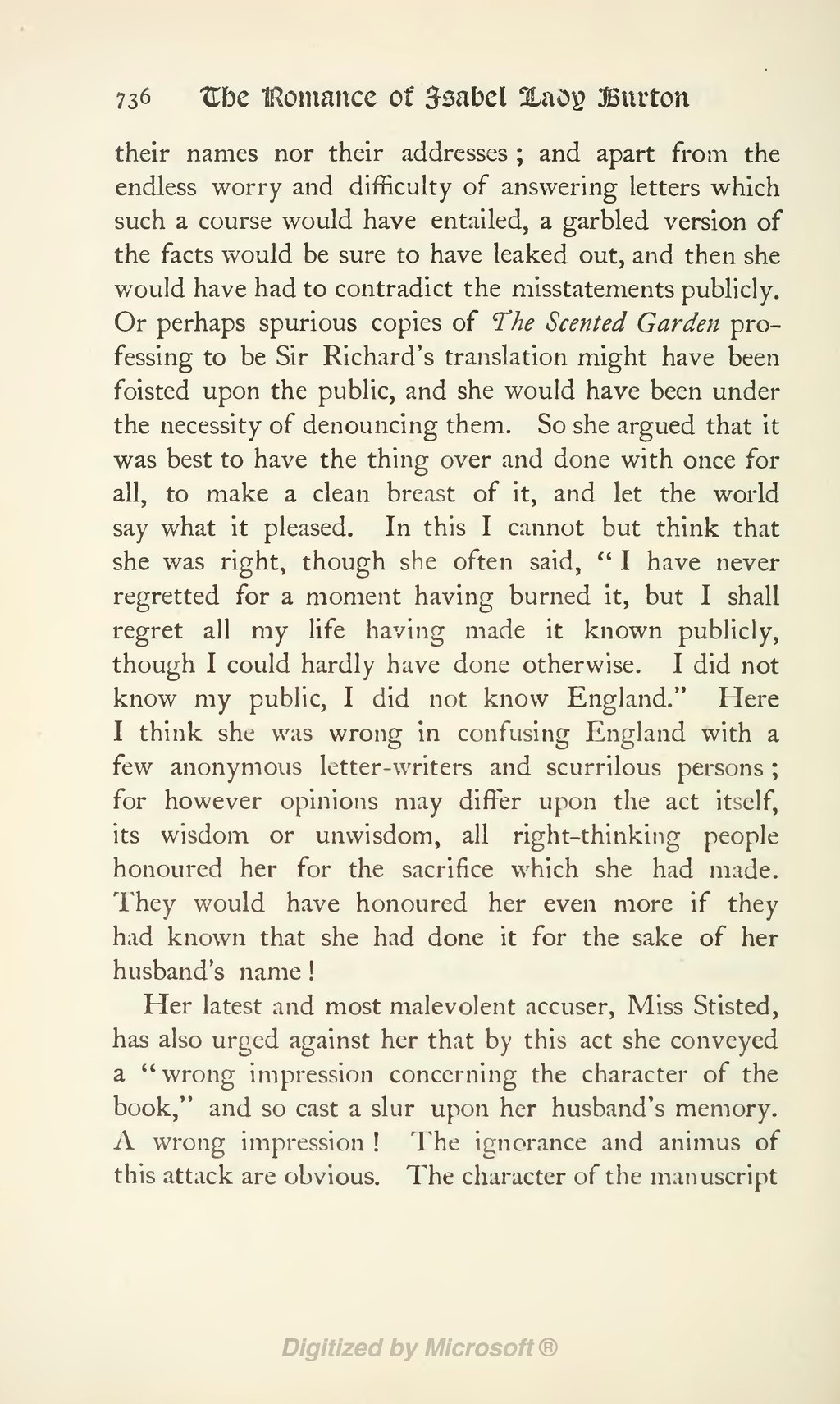their names nor their addresses; and apart from the endless worry and difficulty of answering letters which such a course would have entailed, a garbled version of the facts would be sure to have leaked out, and then she would have had to contradict the misstatements publicly. Or perhaps spurious copies of The Scented Garden professing to be Sir Richard's translation might have been foisted upon the public, and she would have been under the necessity of denouncing them. So she argued that it was best to have the thing over and done with once for all, to make a clean breast of it, and let the world say what it pleased. In this I cannot but think that she was right, though she often said, "I have never regretted for a moment having burned it, but I shall regret all my life having made it known publicly, though I could hardly have done otherwise. I did not know my public, I did not know England." Here I think she was wrong in confusing England with a few anonymous letter-writers and scurrilous persons; for however opinions may differ upon the act itself, its wisdom or unwisdom, all right-thinking people honoured her for the sacrifice which she had made. They would have honoured her even more if they had known that she had done it for the sake of her husband's name!
Her latest and most malevolent accuser, Miss Stisted, has also urged against her that by this act she conveyed a "wrong impression concerning the character of the book," and so cast a slur upon her husband's memory. A wrong impression! The ignorance and animus of this attack are obvious. The character of the manuscript
